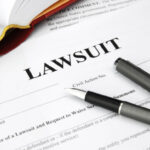Robert Friedland, chairman of Ivanhoe Capital Corporation, reportedly welcomed the Colorado Supreme Court decision this week that reinstated his insurance claim against The Travelers Indemnity Company over costs relating to the former Summitville Gold Mine.
In a ruling released on Monday, the Colorado Supreme Court overturned an earlier lower court decision that dismissed Friedland’s action against the insurance company because the lower court ruled that Friedland’s notice was filed too late for his claim to be heard.
Friedland’s claim now will be heard by the lower court, at a date to be set.
Friedland, an international financier, was an officer of the Summitville Consolidated Mining Company Inc. from 1984 until 1987. The company declared bankruptcy in 1992. Friedland and numerous other officers, individual employees and companies were sued by the United States Environmental Protection Agency and State of Colorado in 1996. Friedland also initiated lawsuits against EPA and Colorado.
In December, 2000, Friedland and the U.S and Colorado governments agreed to end all litigation between them as part of a settlement in which the governments acknowledged that no one person was responsible for the costs of environmental remediation at Summitville. Friedland made a voluntary payment to the U.S. of $20 million in 2001, and the U.S. paid Friedland $1.25 million as partial reimbursement for his legal costs in a Canadian court action.
Travelers had issued insurance policies to the mining company in 1986, when the mine began producing gold. Friedland was reportedly not in a position to notify Travelers of a claim arising from Summitville before 2001 because he only became aware of the existence of the Travelers’ policies after the settlement.
The Colorado Supreme Court ruled this week that insurers cannot automatically avoid paying claims based on the technicality that the insured gave late notice of the claim. The Court held that a liability insurer may be excused from coverage based on late notice of a claim only where there is no justifiable excuse for the late notice, and where the insurer can show it is prejudiced by the late notice.
The lower court, which previously had dismissed Friedland’s case against Travelers, did not consider whether the late notice caused any prejudice to Travelers.
In reversing the trial court’s decision, the Colorado Supreme Court noted that Colorado already requires uninsured-motorist insurers to show that they were prejudiced by late notice, and that courts in most other states also have adopted the prejudice requirement in connection with general liability insurance policies.
Writing for the majority, Justice Hobbs noted the “adhesive nature of insurance contracts, the public’s interest in compensating tort victims, and the inequity of an insurer receiving a windfall from a technicality” as considerations mitigating in favor of the prejudice rule. Where notice is late, but occurs before settlement, the Court held that the insurer has the burden of showing it was prejudiced.
Because Friedland reportedly did not give notice until after he reached a settlement with the governments, the Court held that prejudice to Travelers could be “presumed,” but that Friedland must have the opportunity to show that Travelers could not have obtained “any materially better outcome” than Friedland achieved without Travelers assistance.
The ruling means that Friedland now will have his case heard in the lower court. Justices Kourlis and Coats dissented.
Was this article valuable?
Here are more articles you may enjoy.

 Supreme Court Allows More Transport Workers to Bypass Arbitration and Sue Employers
Supreme Court Allows More Transport Workers to Bypass Arbitration and Sue Employers  California Chiropractor Sentenced to 54 Years for $150M Workers’ Comp Scheme
California Chiropractor Sentenced to 54 Years for $150M Workers’ Comp Scheme  Dog-Related Injury Claim Payouts Hit $1.12B in 2023, Report Shows
Dog-Related Injury Claim Payouts Hit $1.12B in 2023, Report Shows  Supplemental Claims Don’t Need to Include Damage Estimates, Fed Appeals Court Says
Supplemental Claims Don’t Need to Include Damage Estimates, Fed Appeals Court Says 